Part 5 – Luke and Development of a Social Conscience
by Dan Severson
In the gospels, there were two places referred to as “cities” in Galilee: Tiberius and Sepphoris. Sepphoris was a much older city that was destroyed by one of the many Roman wars that took place in Galilee. This happened during Jesus’ childhood, and because it is only seven miles from Nazareth, he would have been aware of the violence and crucifixions that took place. When Herod Antipas became the ruler thereafter, he rebuilt the city as a haven for the wealthy residents of Galilee. Several years after the rebuilding of Sepphoris, Herod decided to build a new capital city on the banks of the Sea of Galilee, and named after the Roman emperor Tiberias. This too was a wealthy city. You would not have run into a blind beggar in one of these two cities. Nor would you have seen the very poor, the crippled, or the deaf. These folks were kept out of the cities. We cannot find any reference to Jesus ever entering either city.
Jesus’ ministry is typically divided up into three categories: teaching, preaching, and healing. For the most part, in all four gospels, this takes place within the context of Galilean villages. The villages – places such as Nazareth, Capernaum, Nain, and Bethsaida may have had a few prosperous residents, but for the most part, the people who lived in these places ranged from subsistence farmers or fisherman, or very poor and disabled.
Ancient cultures did not have what we might call a “social conscience”. It did not occur to anyone that the government or any organization had the responsibility to care for the needy, sick, or mentally ill. Neither did this exist in pagan religions. The only possible source of help for these people was the requirement to give alms in the temple, and this was a Jewish practice that existed mostly in Jerusalem and was designed to feed widows and orphans. There were no hospitals where the sick could seek treatment. In Jesus’ age, people who were sick with fevers such as Malaria, or were paralyzed due to a spinal injury or birth defect, may have sought help from self-proclaimed magicians, of which there were many. Even prayer was often thought to be of vain hope because people were taught that suffering was a punishment from God. Prayers for the sick was largely an invention of Christianity, because Jesus was a healer.
The parable of the Good Samaritan is contained only in the gospel of Luke. Considering the meaning of this parable in context can be very instructive with respect to a culture that developed a social conscience. Jesus uses this opportunity to illustrate that our neighbor is not just people who we like or prefer to be with, or even people who believe as we do. Even Samaritans are your neighbor. The Good Samaritan was the social conscience of the community. As members of a community, we have a responsibility to render aid and care for one another. Jesus’ answer is that anyone could be your neighbor. In so doing, he is helping his followers to understand and develop a social conscience.
Going beyond the parable, the life of Jesus himself obviously illustrates what it looks like to have a social conscience. He taught it, he preached it, and he practiced it. He cured the sick, fed the hungry, comforted the despairing, freed those who became enslaved to evil spirits, and he told his disciples that people would know them as his disciples if they had love for one another.
Because of this, the ministry of the church in regard to caring for the needy developed very early on. The apostles created the deaconate – a group of people responsible to use the churches resources to help widows and orphans. In the United States, both Catholic and Protestant churches created social service organizations, (such as Lutheran Social Services, ELCA World Hunger, ELCA Disaster Response, and numerous others) hospitals, schools, food pantries, and aid for immigrants. Over time, secular society took on this role through social welfare programs, such as Social Security and Medicare. It is no accident that the church has seen itself as being responsible to help the needy, provide education for children, cure the sick, and feed the hungry. In Luke, Jesus created a social conscience among his followers.


